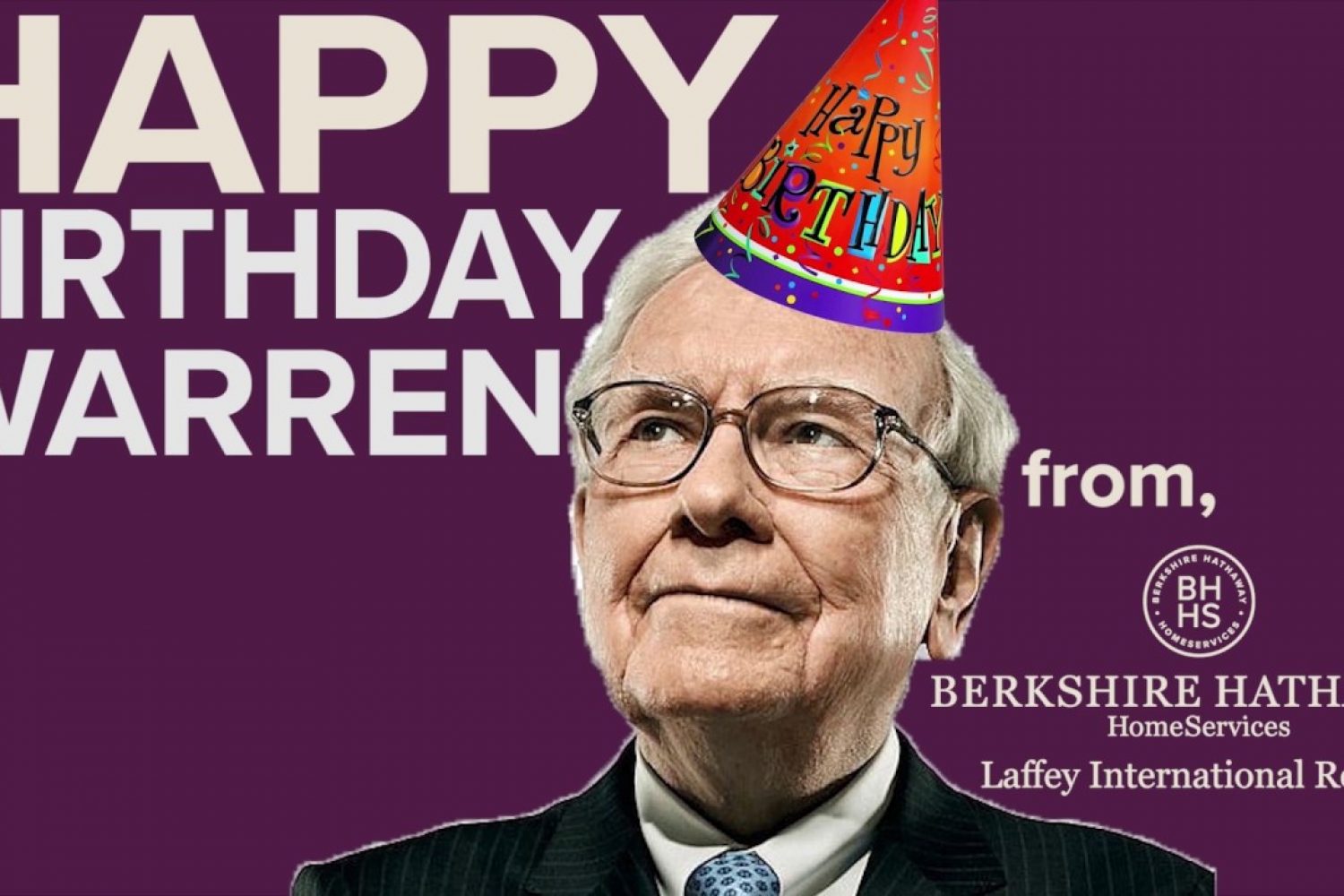Warren Buffett turned 90! To celebrate, the stock market decided to throw a party. Remember the 70th celebration? Our old friend Microsoft was there. Faces have changed since then; instead of AOL, Yahoo and Cisco, you’ll see Apple, Amazon, Facebook and Google. Yet, there are similarities to their predecessors. Between a COVID-induced technology wave and home-bound employees trying free online stock trading and fractional share investing, they appear to be on quite a sugar rush! (more on that below).
Do you know who Warren Buffett is? Probably so. But even if you don’t, it’s worth understanding his investment approach, especially now. He’s one of the greatest investors of this century – and now worth an estimated $80 billion. What’s particularly interesting is that he started his investing company at age 26; yet, he accumulated 95% of that wealth after age 65!
What did Buffett do for the 40 years before then? For starters, he ignored the noise of news headlines, investment analyst stock reports and market prognosticators. Instead, he relentlessly purchased unloved and unsexy stocks trading at significant discounts (i.e., value stocks). He did so despite widespread criticism throughout his career. In the 1990s, for example, critics said he failed to capitalize on the boom in technology stocks (which later became part of the Dot-com bust).
Decades of strife
For 40 years, this guy’s value-focused investment strategy never wavered. That’s impressive under normal circumstances, but even more so when you add context.
If you think the U.S. feels turbulent now, let’s recap what he endured during his investment lifetime:
· In the 1960s, we had the Cuban missile crisis, which basically involved Russia pointing nuclear bombs right at the U.S. from Cuba – little more than a hop-skip-and-jump distance from our mainland. In addition, President Kennedy was assassinated, and protesters at Kent State University were shot and killed by the Ohio National Guard while, at the same time, the Vietnam War was underway!
· In the 1970s, President Nixon resigned, the stock market dropped more than 40% in less than two years, there was hyperinflation, oil prices quadrupled and gold hit record highs. To top it off, Iran held 52 Americans hostage for 444 days!
· In the 1980s, President Reagan was shot, home prices doubled, AIDS was spreading to epidemic levels, the American military base in Beirut was bombed, a financial and real estate crash occurred due to the Savings and Loans scandal and, to end that decade, we had another stock market crash.
· In the 1990s, we had the Asian currency crisis, the Russian financial crisis and the Y2k computer scare.
· And finally, in the 2000s, the Dot-com bubble burst, which set off the ultimate crash. In addition, the events of 9/11 had huge ripple effects.
The approach that made Buffet a legend
Needless to say, Buffett’s career spanned many tumultuous – and financially impactful – events. How did he react in these instances? He didn’t. He continually purchased cheap, out-of-favor companies’ stock, while thousands of individuals criticized him and questioned his tactics.
In other words, he stayed true to his strategy, regardless of the day’s events. Then, in the following decade of the 2000s, his portfolio nearly tripled (while the overall market, simultaneously, lost money).
Current challenges
As I write this article, it’s another time when things seem particularly scary. We’re experiencing the many hardships that accompany a global pandemic. And unfortunately, at this point, there’s no end in sight. In addition, there has been large-scale protesting for nearly three months, and we’re seeing the anger- and anxiety-producing politics that accompany a presidential election year.
Again, it’s an unsettling time.
However, we needn’t look any further than the events of past decades to realize that, to some extent, stress and uncertainty are part of life. Therefore, when it comes to investing, it’s best to keep our heads down and stay the course. Like Warren Buffett.
The road ahead
Even with all of the current turmoil, some areas of the market are seeing prices skyrocket. (Yes, I’m speaking specifically about technology stocks.)
Buffett always said to be “fearful when others are greedy, and greedy when others are fearful.” And when you dig into the numbers, it sure seems like a good time to be fearful. The U.S. Technology sector and the NASDAQ (a tech bellwether index) have been up close to 20% a year for the past 10 years. They’re also trading at seven times their “book value” – a popular Buffett metric that measures intrinsic business value.
And guess what? That’s right where the NASDAQ peaked in 2000. Then, it dropped more than 77% during the following two years.
What’s more, the book value is nearly double the average stock value in the U.S. market and five times the value of the average international stock!
Technology stocks now represent over 35% of the entire U.S. stock market, which is even more than the 1999 tech bubble. To be sure, most of the larger technology firms are great companies with positive earnings and a bright future. However, it’s all about how much you’re paying for these stocks, and their values are saying these are not great buys right now. For example, Apple was up 88% last year and another 50% this year. As such, it’s now the largest company in the world with a market value of $2 trillion. That’s trillion with a “T” – more than the GDP of Canada!
Like Warren, we should disregard the noise, ignore stock market fluctuations, and continue to focus on companies selling at reasonable values. (I know. Blocking this out is easier said than done.) It’s a strategy that has always paid off, though, despite headlines continually stating that we’re in a new era.
The “this time is different” narrative does sound convincing, and it really does feel as if Amazon may take over the world. However, as unusual as it may seem, it’s not different in the sense that there are lots of unknowns on the horizon. And the U.S. has experienced significant innovations before (e.g., electricity, the automobile, trains and airplanes). As investors, we will continue to focus on buying the cheaper-value investments via mutual funds and ETFs, while still owning good, profitable and reasonably valued technology firms.
As we saw in 1999, investors who chased the popular kids paid a hefty price the next decade. We won’t make that mistake.
There was a scare this spring and we believe the bottom was around March 23, when the market was anticipating the next Great Depression. However, most losses were reversed last quarter, when markets decided this was not a depression, but more like a severe recession.
So, to be clear, we expect the market to be volatile – even tumultuous – the next year or two; however, we don’t expect a bust like the one in 2000. Instead, we anticipate that expensive stocks will cheapen and cheap stocks will realize their true value.
The next 5-10 years should bode well for a globally-diversified portfolio that includes value stocks spread among companies all over the world. If you’re investing with Chastain, that’s right where you’ll be.

